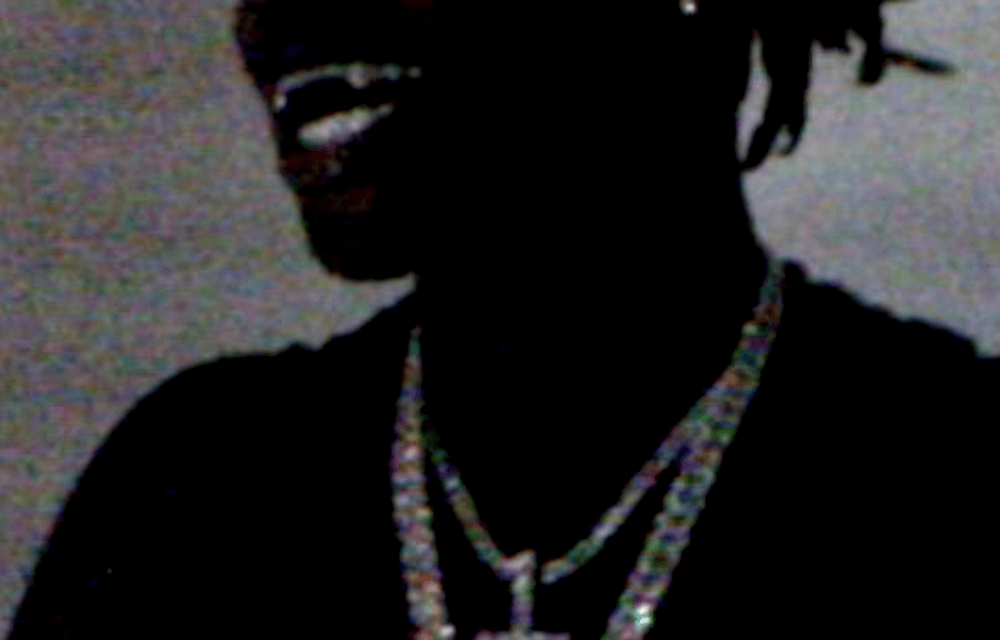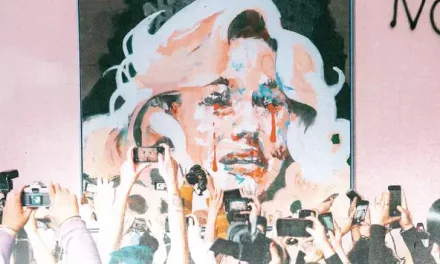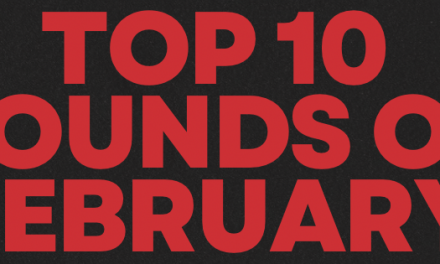The Opium signee’s latest record has restored fans’ faith in the label.
Last Friday, Atlanta native Ken Carson released his third full-length project, A Great Chaos.
Carson first made an impression 2020, when he burst out of the underground scene with his Teen X EP and its infectious standout track, “Yale,” which has since amassed over 130 million streams. This strong debut earned him comparisons to Playboi Carti, who soon signed him to his Opium label. Opium, a division of Interscope Records, provided Carson with new connections and opportunities to grow his sound, and over the years he has taken advantage of these opportunities to help define the Opium sound that is taking underground hip-hop by storm.
It’s hard to talk about Ken Carson’s career without mentioning Opium. The artists signed to the label are few, but their style is very distinct. They often share producers, appear on one another’s albums, and motivate one another to keep evolving their sound. In a way, A Great Chaos is just as much a statement from Opium as it is from Carson. The label has struggled to stay relevant to mainstream hip-hop in recent years due to Playboi Carti’s inactivity, and has mostly relied on Carson and labelmate Destroy Lonely to do the heavy lifting. And in the wake of Lonely’s lackluster sophomore album If Looks Could Kill, it’s unclear what the label’s plan is going forward and what is going to work for these very unique artists and their sound. Opium is in desperate need of a mission statement.
In this regard, A Great Chaos is a resounding success. The record provides the most clear-cut example of the Opium sound and vision since Playboi Carti’s Whole Lotta Red. Carson shows off his much-improved beat selection skills with production that’s catchy and fun, as opposed to X, his sophomore album, which featured beats so distorted you couldn’t pick out a note. A Great Chaos’s first track, “Green Room,” instantly moves away from this sound with a harmonious, layered synth beat courtesy of F1lthy, who made a name for himself by producing some of Whole Lotta Red’s biggest hits. The next two tracks, “Jennifer’s Body” and “Fighting My Demons,” continue the trend with hypnotizing arpeggios and grand synth chords that draw the listener in. The rest of the tracklist follows suit, with melodies that range from cute and dainty (“Vampire Hour”) to abrasive and disorienting (“Pots”). These melodies are underscored by heavy, distorted bass and infectious trap drums to create a slew of fun tracks and incredible moments.
That, however, is the primary flaw with this record and the Opium sound as a whole. They’re only built for moments. This record has already seen early success in creating TikTok sounds, as did Destroy Lonely’s last two albums and Carti’s Whole Lotta Red, but the last of those records was the only one that really felt like an experience and gave people reason to listen to the record front to back. Albums like A Great Chaos, which rely on hype and short, infectious moments for streams, are quickly picked apart for their best ten-second snippets by the internet. This is the reality of the music industry in the TikTok era, and no one is immune – Kendrick Lamar and Mitski are two notable examples of genuine artists whose albums have fallen victim to this trend – but Opium artists seem to be leaning into it, forgetting that their albums could be unique, self-contained experiences rather than playlists to be remixed by the general public. This TikTok-oriented mindset really kills a record in that it encourages the artist to try as many ideas in one record as they can, abbreviating their best ideas to fit in more two-minute tracks that, for the most part, end up being forgotten anyway. A Great Chaos is eighteen tracks long, but hardly any of its songs cross the 3-minute mark. With about six fewer songs and some more love and care put into the standout tracks, this could have been a really solid record.
As it is, there are a few too many misses for A Great Chaos to earn any album of the year nominations. “Like This” seemed to present itself as the record’s big hit, with features from Lil Uzi Vert and Destroy Lonely (who earns the record’s only two other guest verses), but fell very short of the expectations it put on itself. Uzi seems to have no idea what to do on a beat like this. His delivery is flat, while Carson and Lone, who are more than familiar with this style of production, repeat a mind-numbing hook and half-heartedly ad-lib until they crawl across the 3-minute mark to provide one of the record’s longest and most disappointing songs. “Overtime” is similarly repetitive, as Carson wastes a catchy, energetic beat by obnoxiously reminding his haters of things they haven’t done (and, presumably, he has). This deeply flawed songwriting, combined with Carson’s hit-or-miss flows that occasionally lead him completely offbeat, render several songs from the album unlistenable.
Ken Carson and his team at Opium may not be the best at creating consistent, satisfying albums, but A Great Chaos has at least showed them what they do well: they make great snippets and singles. This label is built to create unforgettable moments rather than timeless works of art, and they do it well. It seems that for the foreseeable future, Carson, Carti, and Lone will be leaning on those TikTok sounds and their diehard fanbase quite heavily.
Photo Credits from: The Opium







